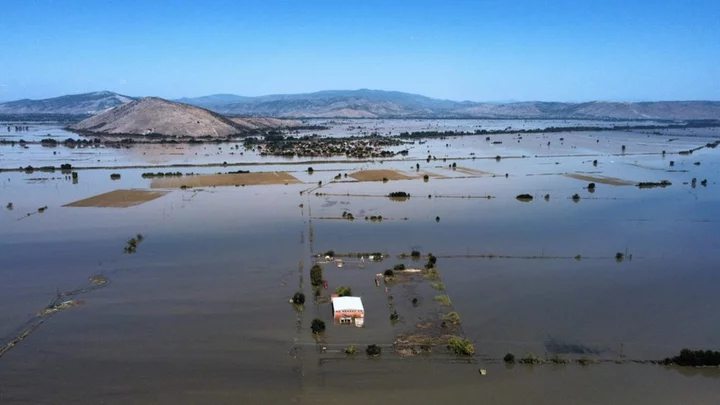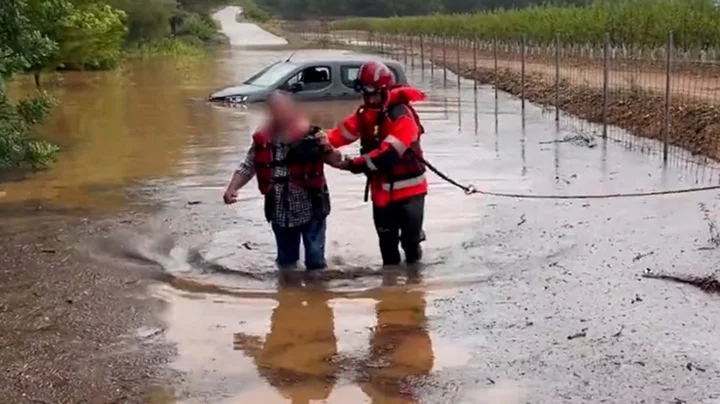Taiwan woke up Monday to toppled trees, floods, and persistent rainfall after Typhoon Haikui made landfall on the island and swept overnight across its central mountain ranges.
It had initially appeared to leave the island, but made a second landfall early Monday morning in southwestern Kaohsiung, before it was downgraded to a severe tropical storm.
There were no reports of deaths, but destruction was seen in coastal Taitung, a mountainous county in lesser-populated eastern Taiwan where the storm directly hit the day before.
"I've lived here for so long and I have never seen such wind gusts," said Chen Hai-feng, 55, a village chief in Taitung's Donghe township, where he was with an early-morning work crew removing trees from a road.
Although Haikui is considered to be less severe than previous storms, Chen said it felt more powerful.
"It came straight through us."
Before Haikui hit Sunday -- the first time Taiwan has had a typhoon make landfall in four years -- thousands were evacuated across the island, particularly from landslides-prone mountainous regions, while hundreds of flights were cancelled and businesses were closed.
Tens of thousands of households temporarily lost power, though more than half had resumed by nightfall.
A forecaster with Taiwan's Central Weather Bureau said Haikui had initially appeared to move through the island and out to sea but made a second landfall in the southwestern coastal city of Kaohsiung at around 4 am (2000 GMT Sunday).
During the night "the centre of the typhoon was almost circling" Kaohsiung, but as it moved along the coastline "the structure of the typhoon is damaged by the terrain and gradually weakens", she said.
Local news outlets reported that the roads were flooded in Kaohsiung, and uprooted trees were strewn across streets.
Haikui is currently nearing neighbouring Tainan, which will bring strong winds and rain to the south and northeast, as well as Taiwan's outlying islands of Kinmen and Penghu located on the strait.
sc-aw-dhc/mca









